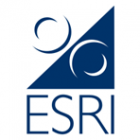The Economic and Social Research Institute
The Economic and Social Research Institute is an independent research institute working towards a vision of ‘Informed policy for a better Ireland’. The ESRI seeks to support sustainable economic growth and social progress in Ireland by providing a robust knowledge base capable of providing effective solutions to public policy challenges. The Institute was founded in 1960 by a group of senior civil servants, led by Dr T.K. Whitaker, who identified the need for independent and in-depth research to support the policymaking process in Ireland. Since then, the Institute has remained committed to independent research and its work is free of any expressed ideology or political position. The Institute publishes all research reaching the appropriate academic standard, irrespective of its findings or who funds the research.
The ESRI brings together leading experts from a variety of disciplines who work together to break new ground across a number of research initiatives. The expertise of its researchers is recognised in public life and researchers are represented on the boards and advisory committees of several national and international organisations. ESRI researchers uphold the highest academic standards. The quality of the Institute’s research output is guaranteed by a rigorous peer review process. Research is published only when it meets the required standards and practices. Research quality has also been assessed as part of two peer reviews of the Institute, in 2010 and 2016. ESRI research findings are disseminated widely in books, journal articles and reports. Reports published by the ESRI are available to download, free of charge, from its website. ESRI staff members communicate research findings at regular conferences and seminars, which provide a platform for representatives from government, civil society and academia to discuss key findings from recently published studies and ongoing research.
The ESRI is a company limited by guarantee, answerable to its members and governed by a Council, comprising a minimum of 11 members and a maximum of 14 members, who represent a cross-section of ESRI members: academia, civil service, state agencies, businesses and civil society.
Education research carried out in the ESRI addresses policy issues critical to achieving greater equality of educational outcomes and improving the experience of students, teachers, principals and other stakeholders across the education system. The student voice is placed at the centre of the research, providing important insights into student experiences across the school system, their reflections on choices made and their post-school pathways.
The ESRI team with their strong expertise in mixed-method research will lead synthesis work package (WP6) which will involve the triangulation of all of the information collected through the earlier work packages. The team will contribute to all other phases of the project (WP 1, 2, 3, 4, 5, 7) with a particularly strong involvement in the secondary data analysis (WP4).

Whitaker Square
Sir John Rogerson’s Quay
Dublin 2, Ireland